Macron makes lunge for post-Brexit business as rats plague the streets of Paris
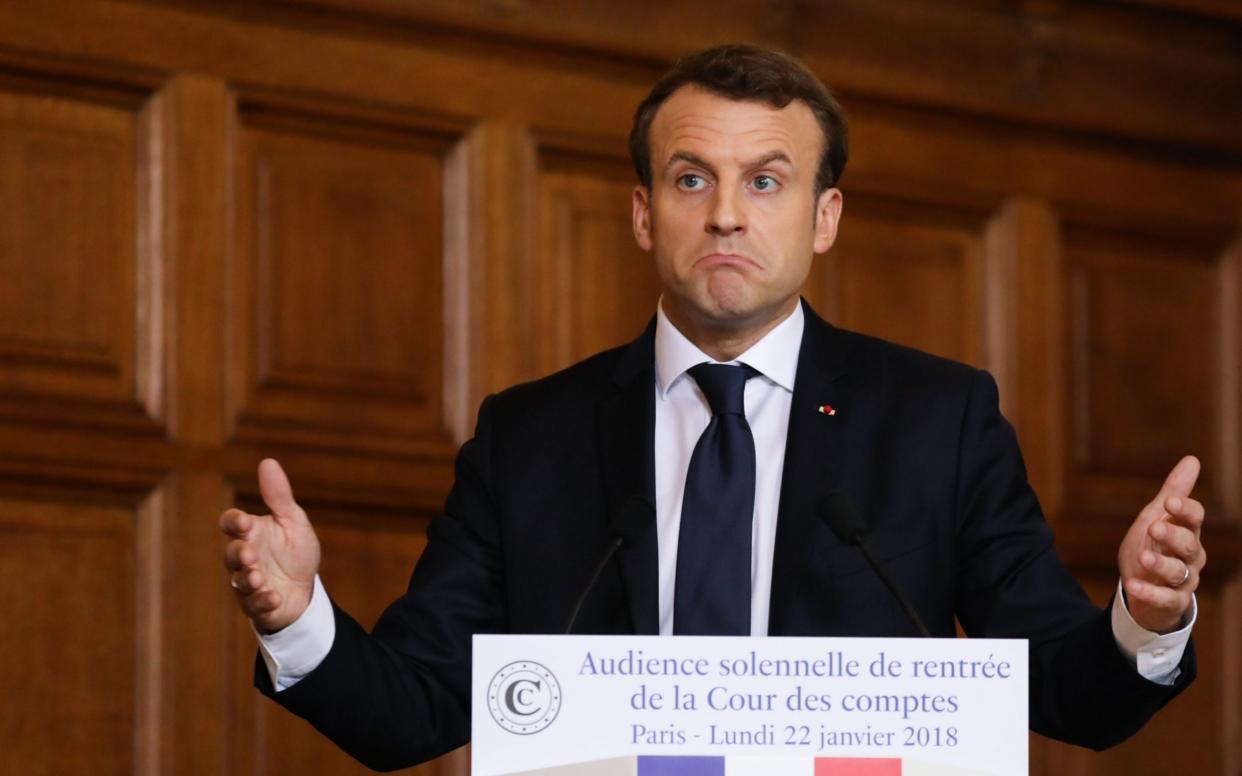
Emmanuel Macron on Monday launched his latest operation to wrest business from post-Brexit Britain by calling on 140 global business leaders at Versailles Palace to “Choose France” in a speech in English – an unprecedented move for a French president on home soil.
The Gallic clarion call to woo the world’s captains of industry at Louis XIV’s gilded palace came amid far less glamorous reports that Paris is facing an invasion of rats in its most exclusive districts.
At the closed door summit in Versailles, Mr Macron addressed a string of CEOs, including those of Google, Goldman Sachs, Coca Cola and Chinese group JD.com, as well as Facebook’s number two, Sheryl Sandberg.
He was also due to hold face-to-face meetings with a handful of these.
Meanwhile, 15 members of his government, including the prime minister, Edouard Philippe, conducted “speed dating” sessions with foreign bosses to understand their needs and drum up business.
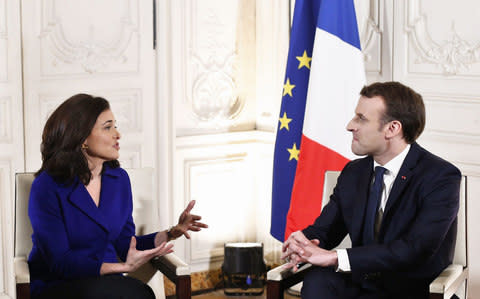
Mr Macron’s stated aim is to sell France to foreign investors as “the place to be” at a time when the French president has claimed the mantle of leader of Europe while the UK is mired in Brexit negotiations and Chancellor Angela Merkel of Germany is bogged down forming a coalition government
The former investment banker is seeking to capitalise on newfound foreign business confidence in France in the wake of his surprise election last May.
Since then, he has driven through labour law reforms and cut wealth tax, as well as pledging to slash corporate tax from 33.3 per cent to 25 per cent by the end of his five-year term.
Backing the president’s claim that “France is back”, an Ipsos poll of 200 top foreign bosses last month showed that 60 per cent found the country attractive compared to 46 per cent the previous year.
Growth is expected to hit 1.9 per cent of GDP this year, the highest in ten years.
The Versailles summit was carefully timed to take advantage of the arrival of many global business leaders in Europe for the Davos World Economic Forum, which opens Tuesday.
Mr Macron will also break with tradition by delivering a speech there partly in English; but in a bid not to irk purists, part will also be in French.
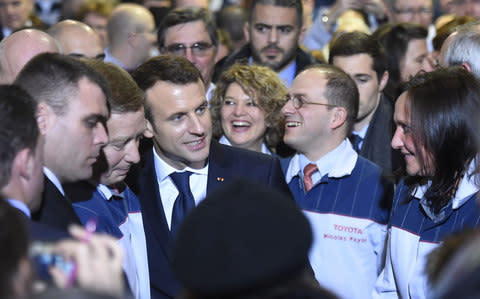
The business charm offensive comes as France is aggressively prosecuting an agenda to erode UK dominance in financial services, including planning what the Financial Times this month dubbed a “raid” on the UK’s £8tn asset management industry.
The French government is expected to unveil a package this month that it hopes will lure 10,000 banking and finance posts from London notably by cutting payroll taxes for high earners moving to Paris.
It also hopes to attract more top foreign executives by opening four new international lycees in the Paris region for children of expatriates.
“The Versailles summit is part of this wider plan to woo foreign business from Britain but also Germany. Macron is riding high right now and considers it fair game to poach from neighbours,” said Cédric Pietralunga of Le Monde.
To counter domestic claims his tax cuts “for the rich” have not helped curb an unemployment rate of nearly 10 per cent, Mr Macron spent three hours at a Toyota plant in northern France where the Japanese carmaker pledged to invest 300 million euros to increase production capacity of the Yaris model, with 800 new jobs to be added by 2020.
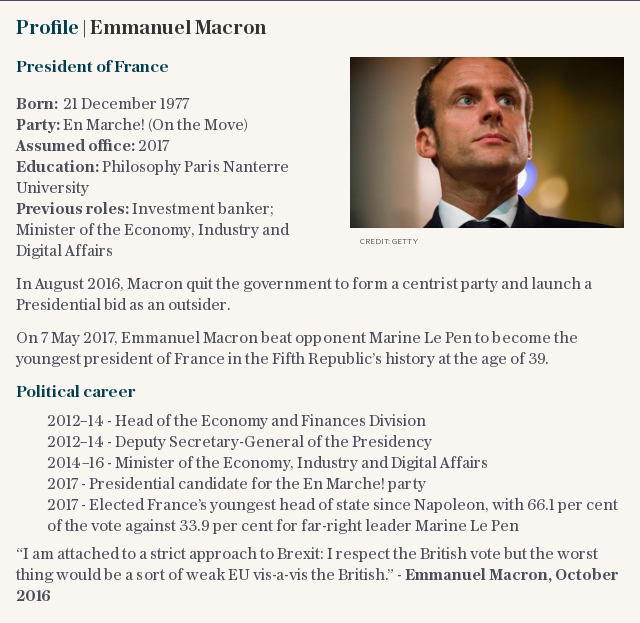
Europe's biggest software company SAP said Monday it will spend up to €2 billion investing in French start-ups as part of its push into cutting-edge technologies, including artificial intelligence.
Facebook also announced it would double the number of staff at its Paris artificial intelligence hub. Other investment deals were expected to be announced.
"Showcasing these projects will create a snowball effect," a presidential adviser said. For all the grandstanding, however, not all is rosy for France, currently stuck with a €50 billion trade deficit.
A study published last week by COE-Rexecode also found that French companies’ share of global markets continued to slide compared to Eurozone rivals.
"Even with a deficit under the three percent limit, France still has one of the worst financial situations among almost all its eurozone partners," Didier Migaud, president of France's Court of Auditors, warned Monday.
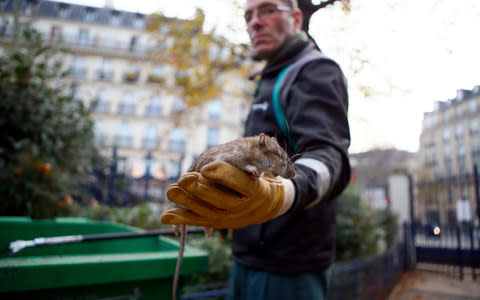
And while Mr Macron wined and dined his business guests with a three-star Michelin meal at Versailles, Parisians were shocked to discover the scale of a rat invasion in upmarket parts of Paris along the river Seine.
Sounding the alarm, Paris’ rubbish collectors released a video to highlight a plague of rats they say now poses a physical threat to dustmen.
In a real-life version of the film Ratatouille, the rats had acquired a taste for haute cuisine, they said, as top restaurants kept leaving rubbish bags on the pavement, attracting the rodents.
Experts said that half the rats are immune to poison and a €1.5 million eradication campaign had failed to stem their presence - partly due to flooding.
The situation, said the dustmen, was no longer tenable for "Parisians and tourists who come to visit the most beautiful city in the world”.

 Yahoo News
Yahoo News 
